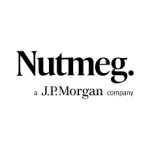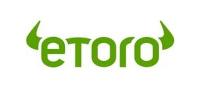Trading UK Shares – 3 Blue Chip FTSE 100 Picks 2021
3 Blue Chip Shares for 2021:
Blue chip stocks are some of the largest and financially sound companies to be found in the FTSE 100. Their size and stature means they can weather economic downturns. Below are 3 blue-chip stocks to consider:
1. AstraZeneca (AZN)
Whilst all the headlines for AstraZeneca have been on its development of a COVID-19 vaccine with Oxford University, this pharmaceutical giant is also at the forefront of developing treatments for onocological, repiratory and immunology and cardiovascular medicines.
AstraZeneca is currently the largest company by capitalisation in the FTSE 100 with a market cap of £95 billion.
Revenues for end of 2019 were £24.3bn and results for the last trading year are due out on 11th February.
The big news last month was AstraZeneca’s agreement to buy Alexion Pharmaceuticals in a deal worth £39bn. The deal if it goes through will be the firms biggest deal and will strengthen its capability in the rare diseases sector.
Following a trading update on 5/11/2020 AstraZeneca’s revenues rose 3% to $6.6bn reflecting good growth in new products.
2. Rio Tinto (RIO.L)
With a market cap of £70.2 bn Rio Tinto engages in exploration, mining and mineral resource processing in the iron ore, aluminium, copper and diamond sectors.
The main market is iron ore which generated $24,1 billion of revenue in 2019.
Rio Tinto is a highly cash generative which is reflected in the current dividend yield (5.34% as at 3/2/2021).
With the global economy likely to contract in 2021 due to the pandemic, one argument is that this is likely to see a contraction in demand and a fall in commodity prices. The counter argument is that governments will try to spend their way out of recession, investing in infrastructure projects.
Rio Tinto’s share price is likely to see volatility reflecting price movements in metal prices and consumption in China.
3. Diageo (DGE.)
Diageo is a leading force in the global alcoholic drinks industry with brands such as Guinness, Johnnie Walker, Baileys, Smirnoff and Captain Morgan.
With a market cap of £69.7bn the company has a global reach within North America accounting for 35% of net sales.
Scotch is Diageo’s number one seller with £1 in £4 of revenue coming from its whiskey stable.
The business has a strong dividend growth record stretching back to the 1990s. The Company is also planning to return cash to shareholders over the next 2 years through company buybacks.
Diageo is well positioned to do well if the vaccine rollout goes smoothly.
Trading or investing in FTSE 100 Blue Chip Shares – What is the difference?
Trading the FTSE 100:
“If you are looking to trade the FTSE to make short term profits you can use products such as CFDs and spread bets to speculate on a FTSE 100 companies share price increasing or decreasing without having to take direct ownership of the shares themselves”.
CFDs (Contracts For Difference) and spread betting are leveraged products, which means you can gain full exposure to the FTSE 100 through a stock while only putting down a small deposit. While this magnifies possible profits, it does the same for losses.
CFDs & spread bets are popular among short term traders as profits and losses are realised immediately – making it faster to open and close trades.
However, this doesn’t mean you can’t use them for longer-term positions too.
You’d just need to consider the costs involved in maintaining a position – such as overnight funding – and the bet duration as spread bets do have fixed terms.
They also enable you to buy and sell shares online without ever owning the underlying asset. This has tax benefits and means you can trade both rising and falling markets (Tax laws are subject to change).
Investing in the FTSE 100:
As an investor you will be looking to invest in the companies that make up the FTSE 100 in the hope that over time the Companies that make up the Index grow & generate good profits.
As an investor you are typically investing for the longer term e.g. 5 years or more is normal.
When you buy shares you become a part owner of that Company and gain shareholder rights including any income that is paid as dividends.
With profits you make on share trading capital gains and dividends earned may be subject to tax at your personal rate. Tax can be mitigated if you trade within an ISA or Self Invested Personal Pension account.
How To Buy FTSE 100 Blue Chip Shares
-
-
- Select a share platform – See below our top 3 platform picks
- Open your share account – To do this you will need your bank details and national insurance number
- Fund your account – You will need to fund your a/c with a debit or credit card or bank transfer
- Search for the ETF using the stock code – Type in the stock code into the search box
- Check out the latest info and price for the selected share – Some platforms offer free research and analysis
- Buy the ETF – Nice and easy!
-
Our view: The next generation of online trading platform means you can buy FTSE 100 shares in as little as 10 minutes! See our top picks for buying shares below:
Trading:
Trade FTSE 100 Blue Chips
Capital is at risk.
- 0% commission on stocks
- Free account
- Inactivity fee after 12 months
Investing:
Invest in FTSE 100 Blue Chips
Capital is at risk.
- 1 free trade per month
- Fixed fee platform – £9.99 pm
- No inactivity fees
Invest in FTSE 100 Blue Chips
- Fixed fee platform – £5.95 to £11.95 per trade
- Free to hold shares (ETFs are shares)
- No inactivity fees
-
Important Risk Information:
No news, feature article or comment should be seen as a personal recommendation to invest. Prior to making any decision to invest, you should ensure that you are familiar with the risks associated with a particular plan. If you are at all unsure of the suitability of a particular product, both in respect of its objectives and its risk profile, you should seek independent financial advice.
The value of shares, ETFs and ETCs bought through a share dealing account, a stocks and shares ISA or a SIPP can fall as well as rise, which could mean getting back less than you originally put in. Past performance is no guarantee of future results.
Spread bets and CFDs are complex instruments and come with a high risk of losing money rapidly due to leverage. Between 67%-75% of retail investor accounts lose money when trading CFDs. You should consider whether you understand how spread bets and CFDs work, and whether you can afford to take the high risk of losing your money. Professional clients can lose more than they deposit. All trading involves risk.
Tax treatment of ISAs depends on your individual circumstances and is based on current law which may be subject to change in the future. ISA transfer charges may apply, please check with your provider.
Tags








